
Speakers
Please see the below biographies of our Annual Meeting speakers—announced as of February 22, 2023. Additional speakers will be added to this page as they are confirmed and announced.
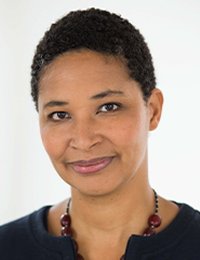
Danielle Allen is a professor of public policy, politics, and ethics at Harvard University, Director of the Edmond and Lily Safra Center for Ethics, and James Bryant Conant University Professor. She is also Founder and President of Partners In Democracy.
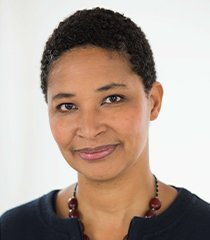
Danielle Allen is a professor of public policy, politics, and ethics at Harvard University, Director of the Edmond and Lily Safra Center for Ethics, and James Bryant Conant University Professor, one of Harvard’s highest honors. She is also Founder and President of Partners In Democracy. She is a seasoned nonprofit leader, democracy advocate, national voice on pandemic response, distinguished author, and mom. Danielle’s work to make the world better for young people has taken her from teaching college and leading a $60 million university division to driving change at the helm of a $6 billion foundation, writing for the Washington Post, advocating for cannabis legalization, democracy reform, and civic education, and most recently, to running for governor of Massachusetts. During the height of COVID in 2020, Danielle’s leadership in rallying coalitions and building solutions resulted in the country’s first-ever Roadmap to Pandemic Resilience; her policies were adopted in federal legislation and a Biden executive order. Danielle made history as the first Black woman ever to run for statewide office in Massachusetts. In her role as board chair for Partners In Democracy, She continues to advocate for democracy reform to create greater voice and access in our democracy, and drive progress towards a new social contract that serves and includes us all. Her many books include the widely acclaimed Our Declaration: a reading of the Declaration of Independence in defense of equality; Cuz: The Life and Times of Michael A.; Democracy in the Time of Coronavirus; and Justice by Means of Democracy.
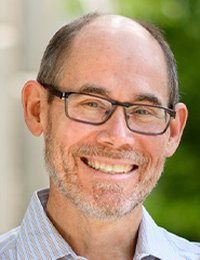
Tom Baker is a highly regarded insurance expert, a leading scholar of insurance law and policy, and a devoted law teacher. His research explores insurance law, institutions, and markets using methods from history, economics, psychology and sociology.
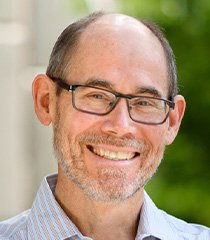
Tom Baker is a highly regarded insurance expert, a leading scholar of insurance law and policy, and a devoted law teacher. His research explores insurance law, institutions, and markets using methods from history, economics, psychology and sociology. His many books, articles, and reports address topics such as the impact of insurance on personal injury and securities litigation, health insurance reform, insurance underwriting and claims management, the historical development of insurance institutions, insurance company restructuring, and many aspects of insurance coverage. Recent articles include “The Government Behind Insurance Governance: Lessons for Ransomware,” which sets out a new framework for analyzing how governments help make insurance markets, and “Uncertainty > Risk: Lessons for Legal Thought From the Insurance Runoff Market,” which argues for understanding insurance markets as centrally about managing uncertainty, not predictable risks. Current research topics include cyber liability and insurance, long term care insurance, secondary insurance markets, legal finance, and the empirical study of insurance litigation.
Baker is the Reporter for the American Law Institute’s Restatement of the Law Liability Insurance and a co-founder of Picwell, a health data analytics company that provides advanced decision support tools to health insurance exchanges, insurers, and employers. Before joining the Penn Law faculty in 2008, Baker served for eleven years as the inaugural Connecticut Mutual Professor and Director of the Insurance Law Center at the University of Connecticut. After graduating from Harvard Law School, Baker clerked for Judge Juan R. Torruella of the U.S. Court of Appeals for the First Circuit, practiced with the law firm of Covington & Burling, served as Associate Counsel to the Independent Counsel Iran/Contra, and entered law teaching as an associate professor at the University of Miami Law School.
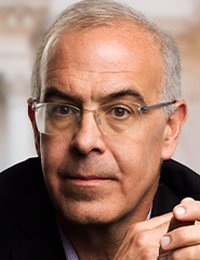
David Brooks is a columnist for The New York Times and a contributor to The Atlantic. He is a commentator on “The PBS Newshour." He is on the faculty of Yale University and a member of the American Academy of Arts & Sciences.
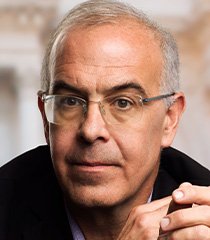
David Brooks is a columnist for The New York Times, a position he began in September 2003. He is also a commentator on “The PBS Newshour.”
He is the author of “The Second Mountain,” about our quest for a moral life. His other books include “The Road to Character,” “Bobos In Paradise: The New Upper Class and How They Got There” and “The Social Animal: The Hidden Sources of Love, Character, and Achievement.”
Mr. Brooks is on the faculty at Yale University and is a member of the American Academy of Arts & Sciences.
Born on August 11, 1961 in Toronto, Canada, Mr. Brooks graduated with a BA in history from the University of Chicago in 1983. He became a police reporter for the City News Bureau, a wire service owned jointly by the Chicago Tribune and Sun Times.
He worked at The Washington Times and then The Wall Street Journal for 9 years. His last post at the Journal was as op-ed editor. Prior to that, he was posted in Brussels, covering Russia, the Middle East, South Africa and European affairs. His first post at the Journal was as editor of the book review section, and he filled in as the Journal's movie critic.
He served as a senior editor at The Weekly Standard for nine years, as well as contributing editor for The Atlantic and Newsweek. Follow him on Twitter @nytdavidbrooks and his Weave project @Weavetheppl.
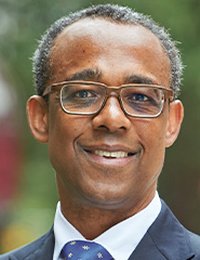
Richard R.W. Brooks joined the law faculty at NYU in 2018. His scholarly approach combines economics, game theory and legal analytical methods from private law fields—such as contract, property, fiduciary and corporate law—to study social organization more broadly.
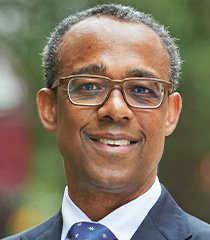
Formerly the Charles Keller Beekman Professor of Law at Columbia Law School, Richard R.W. Brooks focuses his scholarship on contracts and agency, among other forms of business and social organization. Brooks has published numerous books and articles that analyze behavior through the lens of economics, custom, and law. His most recent book, Saving the Neighborhood: Racially Restrictive Covenants, Law, and Social Norms, (coauthored with Carol Rose) examines the history and enduring legacy of racially restrictive property agreements (or racial covenants), which the Supreme Court ruled unenforceable in 1948. Yet despite this repudiation, racial covenants lived on in real estate records, influencing the behaviors of lenders, insurers and realtors, as well as the beliefs and expectations of homebuyers and sellers. Over time the impact of racial covenants would fade, but their legal and social significance lingered well beyond 1948. Racial covenants, even without formal enforcement, were effective signals, creating “common knowledge” that guided the actions of real estate professionals and ordinary buyers and sellers in the housing market.
Brooks’ work also includes articles about contract law and theory, experimental economics, the economics of environmental law, fairness, and perceptions of the legal system.
Brooks holds a BA from Cornell University, an MA from the University of California at Berkeley, a JD from The University of Chicago Law School, and a PhD in economics from the University of California at Berkeley. He was a visiting professor at the Law School in 2006 and was most recently the Leighton Homer Surbeck Professor of Law at Yale Law School. He also taught previously at Northwestern University School of Law and at Cornell University in the Department of Policy Analysis and Management. Brooks has served as a visiting researcher at the Center in Law, Economics and Organization at the University of Southern California Law School; on an advisory committee to the Social, Behavioral and Economics Sciences Division of the National Science Foundation; and as a research specialist in the Antitrust Division of the Department of Justice.
Brooks authored “Canon and Fireworks: Reliance in the Restatements of Contracts and Reliance on Them,” in The American Law Institute: A Centennial History.
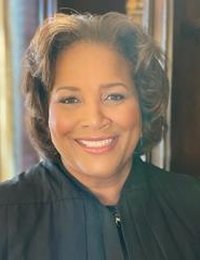
J. Michelle Childs was appointed to the D.C. Circuit in 2022. In 2006, the South Carolina General Assembly elected her as a state circuit court judge. In 2010, she was appointed to the U.S. District Court, District of South Carolina until her appointment to the D.C. Circuit.
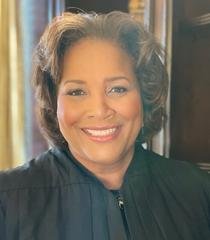
Judge J. Michelle Childs was appointed to the United States Court of Appeals for the District of Columbia Circuit in July 2022. She holds her undergraduate degree in Management from the University of South Florida Honors College, a law degree from the University of South Carolina School of Law, a Masters in Personnel and Employment Relations from the University of South Carolina’s Darla Moore School of Business, a Masters of Judicial Studies from Duke University School of Law, and an Honorary Doctorate Degree in Public Service from the University of South Carolina.
From 1992 to 2000, Judge Childs worked at Nexsen Pruet, ultimately serving as partner. From 2000 to 2002, Judge Childs was appointed to serve as the Deputy Director for the South Carolina Department of Labor, Licensing, and Regulation’s Division of Labor. From 2002 to 2006, Judge Childs received another appointment to serve as a commissioner on the South Carolina Workers’ Compensation Commission. In 2006, the South Carolina General Assembly elected her as a state circuit court judge. During that time, Judge Childs served as chief administrative judge for the General Sessions, which is South Carolina’s criminal court, and as chief administrative judge for the state’s business court. In 2010, she was appointed to the United States District Court for the District of South Carolina until her appointment to the D.C. Circuit.
Judge Childs is active with various local, state, and national bar organizations, as well as community organizations. She is the President-elect of the Federal Judges Association, a former Chair of the American Bar Association’s Judicial Division, and a former Secretary of the American Bar Association’s Labor and Employment Law Section. She serves as a fellow with the American Bar Association’s Litigation Section and its Committee on the American Judicial System. Judge Childs is also a member of the American Law Institute, having served as an Advisor to the Restatement (Third) of Employment Law, and is currently a member of its Council. Judge Childs is also a Council Member for the American Bar Association’s Administrative Law Section. She joins the class of 2022 Rodel Judicial Fellows. Additionally, Judge Childs will serve on the 2023 Bolch Judicial Institute (BJI) Advisory Board.
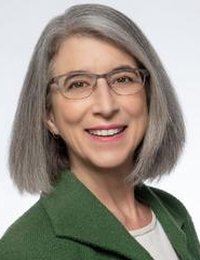
Cindy Cohn is the Executive Director of the Electronic Frontier Foundation, after serving as Legal Director and General Counsel. She served as lead attorney in Bernstein v. Dept. of Justice, the successful First Amendment challenge to the U.S. export restrictions on cryptography.
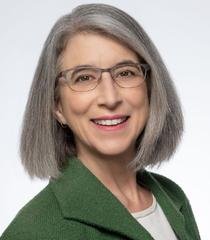
Cindy Cohn is the Executive Director of the Electronic Frontier Foundation. From 2000-2015 she served as EFF’s Legal Director as well as its General Counsel. Ms. Cohn first became involved with EFF in 1993, when EFF asked her to serve as the outside lead attorney in Bernstein v. Dept. of Justice, the successful First Amendment challenge to the U.S. export restrictions on cryptography.
Ms. Cohn has been named to TheNonProfitTimes 2020 Power & Influence TOP 50 list, honoring 2020's movers and shakers. In 2018, Forbes included Ms. Cohn as one of America's Top 50 Women in Tech. The National Law Journal named Ms. Cohn one of 100 most influential lawyers in America in 2013, noting: "[I]f Big Brother is watching, he better look out for Cindy Cohn." She was also named in 2006 for "rushing to the barricades wherever freedom and civil liberties are at stake online." In 2007 the National Law Journal named her one of the 50 most influential women lawyers in America. In 2010 the Intellectual Property Section of the State Bar of California awarded her its Intellectual Property Vanguard Award and in 2012 the Northern California Chapter of the Society of Professional Journalists awarded her the James Madison Freedom of Information Award.
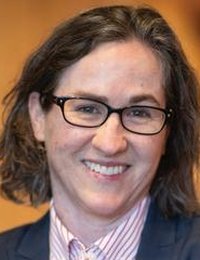
Ashley Deeks' primary research and teaching interests are in the areas of international law, national security, intelligence and the laws of war. She recently served as White House associate counsel and deputy legal adviser to the National Security Council.
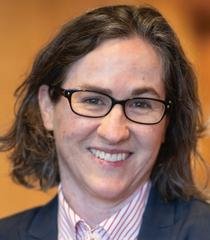
Ashley Deeks joined the UVA School of Law in 2012 as an associate professor of law after two years as an academic fellow at Columbia Law School. Her primary research and teaching interests are in the areas of international law, national security, intelligence and the laws of war. She has written articles on the use of force, executive power, secret treaties, the intersection of national security and international law, and the laws of armed conflict. She is a member of the State Department's Advisory Committee on International Law and the American Law Institute, and she serves as a contributing editor to the Lawfare blog. Deeks also recently served as White House associate counsel and deputy legal adviser to the National Security Council while on leave from the Law School. She is a senior fellow at the Lieber Institute for Law and Land Warfare, and a faculty senior fellow at the Miller Center.
Before joining Columbia in 2010, she served as the assistant legal adviser for political-military affairs in the U.S. State Department’s Office of the Legal Adviser, where she worked on issues related to the law of armed conflict, the use of force, conventional weapons, and the legal framework for the conflict with al-Qaida. She also provided advice on intelligence issues. In previous positions at the State Department, Deeks advised on international law enforcement, extradition and diplomatic property questions. In 2005, she served as the embassy legal adviser at the U.S. Embassy in Baghdad, during Iraq’s constitutional negotiations. Deeks was a 2007-08 Council on Foreign Relations international affairs fellow and a visiting fellow in residence at the Center for Strategic and International Studies.
Deeks received her J.D. with honors from the University of Chicago Law School, where she was elected to the Order of the Coif and served as comment editor on the Law Review. After graduation, she clerked for Judge Edward R. Becker of the U.S. Court of Appeals for the Third Circuit.
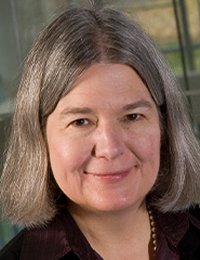
Deborah DeMott focuses her scholarship and teaching on the law of agency, business organizations, fiduciary obligation, and art law. She served as sole Reporter on Restatement of the Law Third of Agency, published in 2006.
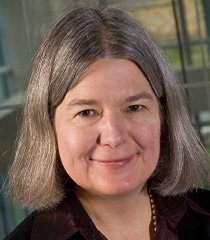
Deborah A. DeMott focuses her scholarship and teaching on the law of agency, business organizations, fiduciary obligation, and art law. She served as sole Reporter for the American Law Institute’s Restatement (Third) of Agency, published in 2006.
In addition to numerous articles, DeMott is the author of a treatise, Shareholder Derivative Actions, initially published in 1987 and updated annually and a casebook, Fiduciary Obligation, Agency and Partnership, published in 1991. She is the editor, with Danny Busch, of The Liability of Asset Managers (Oxford Univ. Press, 2012).
A native of DuBois, Pa., DeMott received her BA from Swarthmore College in 1970 and her JD in 1973 from New York University where she served as articles editor of the New York University Law Review. Before joining the Duke Law faculty in 1975, she held a federal clerkship and practiced with a large law firm, both in New York City. She received Duke University’s Scholar/Teacher of the Year Award in 1989.
From 2000 to 2002, DeMott held a secondary appointment as Centennial Visiting Professor in the Law Department of the London School of Economics. She has also taught at the Central European University in Budapest, and at the Universities of Sydney, Melbourne, Texas, Colorado, San Diego, the Hastings College of Law of the University of California, and at Osgoode Hall Law School, York University, Toronto. In 1986 she was a Fulbright Senior Scholar at Sydney and Monash Universities in Australia. In Spring 1996 Professor DeMott held the Hurst C. Huber Visiting Chair at the University of Florida College of Law. In spring 1998 she was the Scholar in Residence at the Frances Lewis Law Center, Washington and Lee University School of Law. In spring 1999 she was in residence at the University of Auckland as the New Zealand Legal Research Foundation Visiting Fellow.
DeMott authored “Restating the Law in the Shadow of Codes: The ALI in Its Formative Era,” in The American Law Institute: A Centennial History.
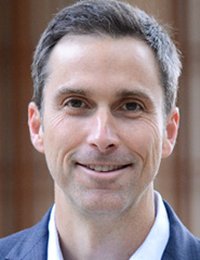
David Engstrom is a far-ranging scholar of the design and implementation of litigation and regulatory regimes whose expertise runs to civil procedure, administrative law, constitutional law, law and technology, and empirical legal studies.
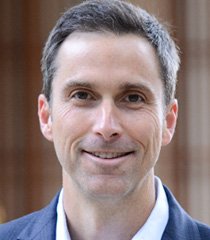
David Freeman Engstrom is the LSVF Professor in Law and Co-Director, Deborah L. Rhode Center on the Legal Profession at Stanford Law School. He is a far-ranging scholar of the design and implementation of litigation and regulatory regimes whose expertise runs to civil procedure, administrative law, constitutional law, law and technology, and empirical legal studies. Engstrom serves as the Reporter on Principles of the Law, High-Volume Civil Adjudication.
Engstrom’s current work focuses on access to justice, from complex, headline-grabbing mega-litigations to the smaller but highly consequential cases, including debt collection actions and evictions, that shape the lives of millions of Americans each year.
A particular focus is the role of technology in the civil justice system, including lawyers’ use of “legal tech” tools to serve their clients as well as a growing menu of new technologies designed to assist those without lawyers. Professor Engstrom has published numerous articles on these topics and is the editor of the forthcoming volume, Legal Tech and the Future of Civil Justice (Cambridge University Press 2023). Engstrom is also the co-founder of the Filing Fairness Project, an ambitious and innovative effort that is bringing together six states to simplify filing procedures and eliminate barriers facing self-represented litigants. From 2020 to 2022, he served as a public appointee to the State Bar of California’s Closing the Justice Gap Working Group, tasked with proposing reforms to foster innovation in legal services delivery models.

Nita A. Farahany is the Robinson O. Everett Professor of Law and Philosophy at Duke University School of Law. She is a leading scholar on the ethical, legal, and social implications of emerging technologies.

Nita A. Farahany is the Robinson O. Everett Professor of Law and Philosophy at Duke University School of Law. She is a leading scholar on the ethical, legal, and social implications of emerging technologies. She is the Robinson O. Everett Distinguished Professor of Law & Philosophy at Duke Law School, the Founding Director of Duke Science & Society, the Faculty Chair of the Duke MA in Bioethics & Science Policy, and principal investigator of SLAP Lab.
Farahany is a frequent commentator for national media and radio shows and a regular keynote speaker. She presents her work to diverse academic, legal, corporate, and public audiences including at TED, the World Economic Forum, Aspen Ideas Festival, Judicial Conferences for US Court of Appeals, scientific venue including the American Association for the Advancement of Science, the Society for Neuroscience, the National Academies of Science, Engineering and Medicine, the American Society for Political and Legal Philosophy, and by testifying before Congress.
Her current scholarship focuses on the implications of emerging neuroscience, genomics, and artificial intelligence for law and society; legal and bioethical issues arising from the COVID-19 pandemic; FDA law and policy; and the use of science and technology in criminal law. In addition to publishing in legal and scientific journals, as well as edited book volumes, Farahany is the author of the forthcoming book The Battle for Your Brain: Defending Your Right to Think Freely in the Age of Neurotechnology (St. Martin’s Press 2023).
In 2010, Professor Farahany was appointed by President Obama to the Presidential Commission for the Study of Bioethical Issues and served until 2017. She is an appointed member of the National Advisory Council for the National Institute for Neurological Disease and Stroke, an elected member of the American Law Institute and Fellow of the American Association for the Advancement of Science, past President of the International Neuroethics Society, an ELSI (ethical, legal, and social implications) advisor to the NIH Brain Initiative and to the Defense Advanced Research Projects Agency, an appointed member of both the Forum on Neuroscience and Nervous System Disorders and the Standing Committee on Biotechnology Capabilities and National Security Needs for the National Academies of Sciences, Engineering, and Medicine, and a member of the Global Future Council on Frontier Risks and Expert Network for the World Economic Forum. She served as Reporter for the Study Committee and later Drafting Committee on updating the Uniform Determination of Death Committee for the Uniform Law Commission. In 2022, she was appointed by Governor Roy Cooper to the NC Delegation for the Uniform Law Commission, and currently serves in that capacity. Farahany is a co-editor-in-chief and co-founder of the Journal of Law and the Biosciences and on the Board of Advisors for Scientific American. She also serves on scientific and ethics advisory boards for corporations.
Farahany received her AB in Genetics, Cell, and Developmental Biology from Dartmouth College, an ALM in biology from Harvard University, and a JD and MA from Duke University, as well as a Ph.D. in philosophy. In 2004-2005, Farahany clerked for Judge Judith W. Rogers of the U.S. Court of Appeals for the D.C. Circuit, after which she joined the law faculty at Vanderbilt University. In 2011, Farahany was the Leah Kaplan Visiting Professor of Human Rights at Stanford Law School.
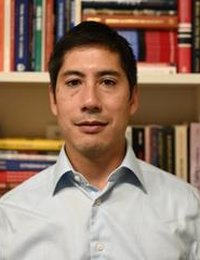
Steven Feldstein is a senior fellow in the Democracy, Conflict, and Governance Program. His research focuses on technology and politics, U.S. foreign policy, international relations, and the global context for democracy and human rights.
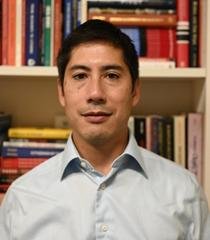
Steven Feldstein is a senior fellow at the Carnegie Endowment for International Peace in the Democracy, Conflict, and Governance Program. His research focuses on technology and politics, U.S. foreign policy, international relations, and the global context for democracy and human rights.
Feldstein is the author of The Rise of Digital Repression: How Technology is Reshaping Power, Politics, and Resistance (2021), which is the recipient of the 2023 Grawemeyer Award for Ideas Improving World Order.
He has published research on digital technology’s impact on war, the role of artificial intelligence is reshaping repression, the geopolitics of technology, China’s advancing digital authoritarianism, and new patterns of internet shutdowns. He released a global AI surveillance index to track the proliferation of advanced digital tools and published a global inventory of commercial spyware and digital forensics.
Previously, he was the holder of the Frank and Bethine Church Chair of Public Affairs and an associate professor at Boise State University. He has served in multiple foreign policy positions in the U.S. government. He was a deputy assistant secretary in the democracy, human rights, and labor bureau in the U.S. Department of State under President Obama. Prior to that role, he served as the director of policy at the U.S. Agency for International Development, and also worked as counsel on the U.S. Senate Committee on Foreign Relations under Chairmen Joseph Biden and John Kerry.
He has authored numerous essays, articles, book chapters, policy reports, and commentary in major media outlets and policy journals. He is a graduate of Princeton University and Berkeley Law. He was born and raised in Bloomington, Indiana. His full CV can be found here.
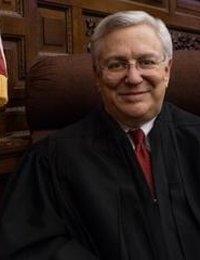
Richard Mark Gergel is a native of Columbia, South Carolina. He was nominated to his judicial appointment by President Barack Obama in December 2009 and was confirmed by unanimous vote of the U.S. Senate on August 5, 2010.
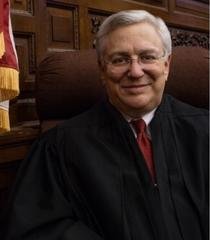
Richard Mark Gergel is a native of Columbia, South Carolina and is a graduate of the Richland School District No. 1 public schools. He attended New College, Oxford University and Duke University, where he graduated in 1975 summa cum laude. Gergel attended the Duke University School of Law and graduated in 1979. While at Duke Law School, Gergel was a member of the Editorial Board of the Duke Law Journal. He was sworn in as a member of the South Carolina Bar in November 1979, initially practicing with the law firm of Medlock and Davis. He subsequently began his own law firm in 1983 and practiced with the firm, Gergel, Nickles and Solomon, until 2010. Gergel was nominated as an United States District Judge by President Barack Obama in December 2009 and was confirmed by an unanimous vote of the United States Senate on August 5, 2010. Gergel presides in the Charleston Federal Courthouse.has a long standing interest in the history of his native state and has written books and numerous articles and book chapters on South Carolina history. His latest book is titled, Unexampled Courage. He is married to Dr. Belinda Friedman Gergel and they have two sons, Richie and Joseph.
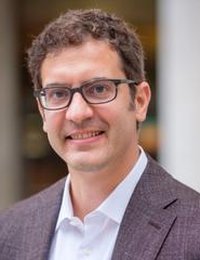
Andrew Gold is professor of law at Brooklyn Law School and is associate director of the Center for the Study of Business Law and Regulation, and director of its Program on Private Law. He teaches corporations and torts, as well as seminars in tort theory and fiduciary law.
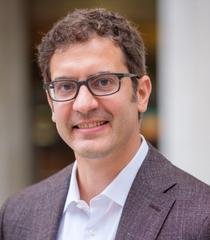
Andrew Gold is professor of law at Brooklyn Law School and is associate director of the Center for the Study of Business Law and Regulation, and director of its Program on Private Law. He teaches corporations and torts, as well as seminars in tort theory and fiduciary law.
His primary research interests address private law theory, fiduciary law, and the law of corporations. Professor Gold is the co-editor of The American Law Institute: A Centennial History. His recent book, The Right of Redress (Oxford University Press, 2020), offers a new theory of private law. His work has appeared in the Michigan Law Review, Northwestern University Law Review, University of Toronto Law Journal, Law and Philosophy, and American Journal of Jurisprudence, and is forthcoming in Ethics. He is also co-editor of multiple books on fiduciary theory, including Philosophical Foundations of Fiduciary Law (Oxford University Press, 2014) (with Paul Miller), and a co-editor of The Oxford Handbook of The New Private Law (Oxford University Press, 2020) (with John Goldberg, Dan Kelly, Emily Sherwin, and Henry Smith).
Professor Gold previously was the Bruce W. Nichols Visiting Professor at Harvard Law School; an HLA Hart Visiting Fellow at the University of Oxford; and a Fulbright Visiting Research Chair at McGill University. He is a co-founder of the North American Workshop on Private Law Theory and is a member of the American Law Institute.
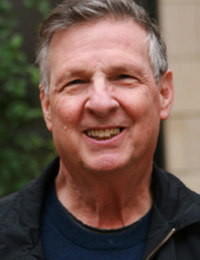
Robert W. Gordon is Professor of Law, Emeritus at Stanford Law and the co-editor of The American Law Institute: A Centennial History. He has written extensively on contract law, legal philosophy, and on the history and current ethics and practices of the organized bar.
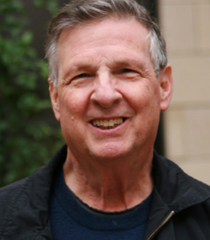
Robert W. Gordon is Professor of Law, Emeritus at Stanford Law and the co-editor of The American Law Institute: A Centennial History. A preeminent legal historian, prolific scholar, and gifted teacher, Robert W. Gordon’s expertise in American legal history, evidence, the legal profession, and law and globalization spans four decades, his influence on generations of lawyers and legal scholars incalculable. He has written extensively on contract law, legal philosophy, and on the history and current ethics and practices of the organized bar. Gordon is known for his key works, Taming the Past: Law in History and History in Law (essays on legal history and the uses of history in legal argument); The Legacy of Oliver Wendell Holmes (1992), and Storie Critiche del Diritto (Critical Legal Histories) (1995), and is editor of Law, Society, and History: Themes in the Legal Sociology and Legal History of Lawrence M. Friedman, which examines and celebrates the scholarship of Stanford’s Marion Rice Kirkwood Professor of Law Lawrence Friedman.
Professor Gordon received his BA from Harvard University and his JD from Harvard Law School. Before going to law school, he worked as a newspaper reporter and served in the U.S. Army. Following law school, he served in the Office of the Attorney General of Massachusetts (1971). Professor Gordon taught previously at Stanford Law School in 1983-1995, and most recently, he was the Chancellor Kent Professor of Law and Legal History at Yale Law School. He also taught at the University of Buffalo Law School SUNY and the University of Wisconsin, and has been a visiting professor at Harvard University, Oxford University, the University of Toronto, and the European University Institute.
Professor Gordon has served on several American Bar Association and Connecticut Bar task forces on professional ethics and practice and on the Advisory Board of the Legal Profession Program of the Open Society Institute (Soros Foundation). He also is a past president of the American Society for Legal History. His forthcoming publications include: Lawyers of the Republic; and The American Legal Profession, 1870-2000.
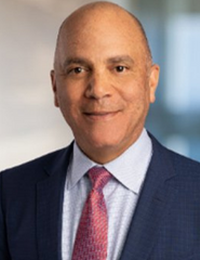
Wallace Jefferson currently serves as Treasurer of The American Law Institute. He was appointed to the Supreme Court of Texas in 2001 and served as its Chief Justice from 2004 to 2013. In 2013, he joined Alexander Dubose & Jefferson as a name partner.
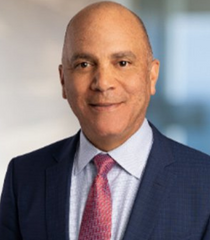
Wallace Jefferson is the former Chief Justice of the Supreme Court of Texas and currently serves as Treasurer of The American Law Institute.
Jefferson served on the Supreme Court of Texas from 2001 and as its chief justice from 2004 to 2013. In October 2013, he joined Alexander Dubose & Jefferson as a name partner.
Justice Jefferson was elected to the ALI in December 2001 and was elected to the Council in May 2011. He currently serves as Chair of the Regional Advisory Group for the Fifth Region.
Prior to joining the bench, he was a partner at Crofts, Callaway & Jefferson, a preeminent appellate practice in Texas. During his time on the bench, he served as President of the Conference of Chief Justices, an association of chief justices from the 50 states and U.S. territories.
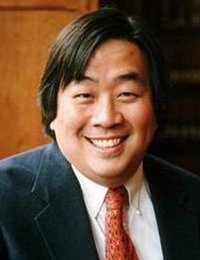
Harold Hongju Koh is Sterling Professor of International Law at Yale Law School, where he has taught since 1985, and served as 15th Dean from 2004-09. Professor Koh was elected to the ALI in May 1992 and was elected to the Council in May 2013.
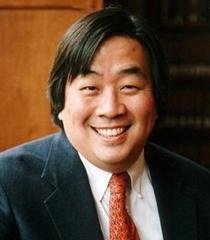
Harold Hongju Koh is Sterling Professor of International Law at Yale Law School, where he has taught since 1985, and served as 15th Dean from 2004-09. Professor Koh was elected to the ALI in May 1992 and was elected to the Council in May 2013. He served previously as Counselor of the Restatement Fourth, Foreign Relations Law of the United States project and as an Adviser on the Transnational Rules of Civil Procedure project.
From 2009 to 2013, Professor Koh ;took leave as the Martin R. Flug ’55 Professor of International Law to join the State Department as its 22d Legal Adviser, service for which he received the Secretary of State 's Distinguished Service Award. He returned to that office in 2021 as Senior Advisor under President Joe Biden. From 1993 to 2009, he was the Gerard C. & Bernice Latrobe Smith Professor of International Law at Yale Law School, and from 1998 to 2001, he served as U.S. Assistant Secretary of State for Democracy, Human Rights and Labor. He also previously served as Attorney-Adviser, Office of Legal Counsel, U.S. Department of Justice (1983-85), law clerk to Justice Harry A. Blackmun of the U.S Supreme Court (1981-82), and law clerk to Judge Malcolm Richard Wilkey of the U.S. Court of Appeals for the DC Circuit (1980-81). He is the recipient of 17 honorary degrees and more than thirty awards for his work in human rights and international law.
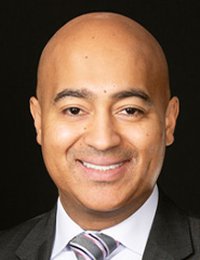
Travis LeBlanc co-leads Cooley’s global litigation department and the firm’s cyber/data/privacy practice. He is a top authority on cybersecurity, data privacy, telecommunications, and the regulation of emerging and innovative technologies.
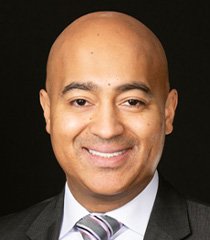
Travis LeBlanc co-leads Cooley’s global litigation department and the firm’s cyber/data/privacy practice. He is a top authority on cybersecurity, data privacy, telecommunications, and the regulation of emerging and innovative technologies. Drawing on his broad experience in federal and state government, he helps clients manage regulatory and litigation risk, as well as strategically respond to data breaches, cyberattacks, nation-state attacks, dissemination of stolen data, misinformation campaigns and government enforcement efforts, including those by the Federal Trade Commission (FTC), Federal Communications Commission (FCC) and state attorneys general.
In addition to advising boards of directors and senior corporate officers on crisis management, internal investigations, information governance and national security matters, Travis counsels clients on antitrust investigations, telecommunications strategies and regulatory enforcement responses. The respect and skills Travis has earned during his career have translated into appointments across the political spectrum, including his selection by the US Department of Commerce and the European Commission to serve as an arbitrator for the EU-US Privacy Shield Framework, and his unanimous US Senate confirmation to the US Privacy and Civil Liberties Oversight Board.
With his broad understanding of technology, media and telecommunications, as well as his senior government experience at the national and state levels, Travis is uniquely positioned to advise and represent clients in litigation on a range of data privacy, cybersecurity and information management issues, including data breaches, class actions and government enforcement actions. Travis has assisted clients with federal and state telecommunications needs, including FCC proceedings and regulations and merger reviews. He has worked with Congress and other regulatory agencies on behalf of clients, and advocated for emerging and established technology companies before regulatory bodies. He also has worked closely with senior officials at other federal, state and international agencies, including the FTC, US Securities and Exchange Commission (SEC), Consumer Financial Protection Bureau (CFPB), Department of Justice (DOJ), all 50 state attorneys general, and data protection authorities (DPAs) across the globe. His deep understanding of the regulatory and legal landscapes helps Travis strategically respond to and favorably resolve government inquiries and legal disputes.
Travis currently serves on the US Privacy and Civil Liberties Oversight Board, a position he has held since 2019 after being nominated by then-President Donald Trump and confirmed by the Senate. Travis was renominated to the board by President Joe Biden in 2022. As former chief of the FCC’s Enforcement Bureau during the Obama administration, Travis spearheaded hundreds of enforcement actions involving consumer issues, such as false advertising and the Telephone Consumer Protection Act (TCPA), unfair competition, regulatory compliance, and fraud, waste and abuse of government programs. Travis previously served as a senior adviser to former California Attorney General (now Vice President) Kamala Harris and as special assistant attorney general of California, where he oversaw the state’s complex policy and litigation in areas including technology regulation, high-tech crime, cybersecurity, privacy, intellectual property, antitrust, healthcare, telecommunications and human trafficking. Prior to this high-profile California role, he served during the Obama administration as an attorney in the DOJ’s Office of Legal Counsel, which advises the president, attorney general and executive branch agencies on the constitutionality and legality of US government programs and activities.
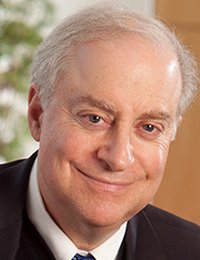
David F. Levi is the Levi Family Professor of Law and Judicial Studies and Director of the Bolch Judicial Institute. Professor Levi was previously the James B. Duke and Benjamin N. Duke Dean of the School of Law. He became ALI's 10th President in May 2017.
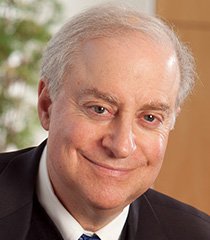
David F. Levi is the Levi Family Professor of Law and Judicial Studies and Director of the Bolch Judicial Institute. Professor Levi was previously the James B. Duke and Benjamin N. Duke Dean of the School of Law. The 14th dean of Duke Law School, he served from 2007 to 2018.
Prior to his appointment in 2007, he was the Chief United States District Judge for the Eastern District of California with chambers in Sacramento.
After law school, he clerked with Judge Ben C. Duniway of the U.S. Court of Appeals for the Ninth Circuit and with U.S. Supreme Court Justice Lewis F. Powell. He also served in the U.S. Attorney’s Office for the Eastern District of California as a prosecutor and was appointed a U.S. Attorney.
Professor Levi was elected to ALI in March 1991 and to the Council in October 2005. He became ALI's 10th President in May 2017.
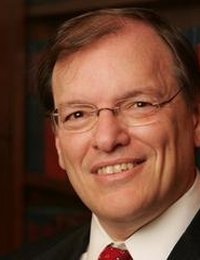
Gerard E. Lynch is a judge on the U.S. Court of Appeals for the Second Circuit where he has served since 2009. He is also the Paul J. Kellner Professor of Law at Columbia Law School, where he teaches courses in criminal law and procedure, sentencing, and professional responsibility.
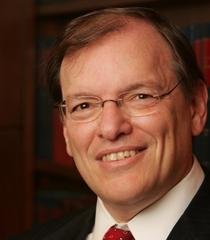
Gerard E. Lynch is a judge on the U.S. Court of Appeals for the Second Circuit where he has served since 2009. He previously served on the Southern District of New York bench from 2000 to 2009. He is also the Paul J. Kellner Professor of Law at Columbia Law School, where he teaches courses in criminal law and procedure, sentencing, and professional responsibility.
Judge Lynch was elected to the ALI in December 1998 and was elected to the Council in 2009. He serves as an Adviser on the Model Penal Code: Sexual Assault and Related Offenses project; the Model Penal Code: Sentencing project; and the Restatement Third, The U.S. Law of International Commercial Arbitration project.
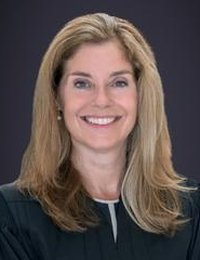
Bridget Mary McCormack is President and CEO of the American Arbitration Association-International Centre for Dispute Resolution. She is also a Strategic Advisor to the Future of the Profession Initiative at the University of Pennsylvania Carey Law School.
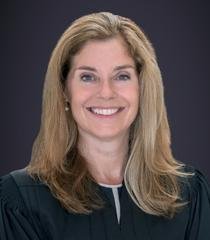
Bridget Mary McCormack is President and CEO of the American Arbitration Association-International Centre for Dispute Resolution. She is also a Strategic Advisor to the Future of the Profession Initiative at the University of Pennsylvania Carey Law School. Until the end of 2022, McCormack was Chief Justice of the Michigan Supreme Court, a position her peers selected her for in January 2019 after she served for six years as a Justice. While on the Court, she championed innovation and the use of technology to improve access to justice.
A graduate of New York University Law School, McCormack started her legal career in at the Legal Aid Society in New York City. In 1996, she joined the Yale Law School faculty. She then joined the University of Michigan Law School faculty in 1998, where she taught criminal law, legal ethics, and numerous clinics. She was Associate Dean for Clinical Affairs from 2002 until 2012.
McCormack was elected to The American Law Institute in 2013. The Attorney General of the United States appointed her to the National Commission on Forensic Science in 2014. In 2019, the Governor of Michigan named her Co-Chair of the Michigan Joint Task Force on Jail and Pretrial Incarceration. In 2020, she joined the American Bar Association’s Council on Legal Education and Admission to the Bar and currently serves as Vice Chair. In 2021, the Governor of Michigan asked her to co-chair the Michigan Task Force on Forensic Science and to chair the Michigan Jail Reform Advisory Council. She also chaired the Michigan Judicial Council, the strategic planning body for the judicial branch. In 2021, McCormack was also appointed to serve nationally on The Council of State Governments Healthy States National Task Force and the ABA Center for Innovation’s Governing Council. She was also named Chair of the ABA Board of Elections.
McCormack is an Editor of the ABA’s preeminent publication, Litigation Journal. She speaks and writes frequently about access to justice, innovation in the legal profession, and legal education.
McCormack is married to Steven Croley, General Counsel and Chief Policy Officer at Ford Motor Company. They have four adult children.
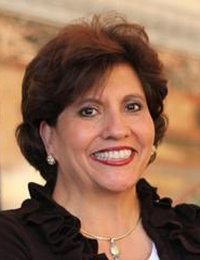
Mary Murguia received her Juris Doctor degree from the University Of Kansas School Of Law, and her Bachelor of Arts and Science in Spanish and Journalism, respectively. In March 2010, she was nominated by President Obama for a seat on the United States Court of Appeals.
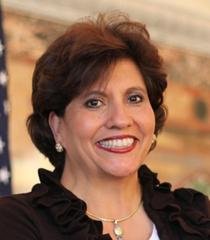
Mary Murguia received her Juris Doctor degree from the University Of Kansas School Of Law, and her Bachelor of Arts and Science in Spanish and Journalism, respectively. In March 2010, she was nominated by President Obama for a seat on the United States Court of Appeals. Obama stated “I am honored to nominate her and am confident that she will serve the American people with fairness and integrity.” Judge Murguia was the first Latina to serve on the U.S. District Court of Arizona and has served in many capacities including: Assistant District Attorney in Kansas City, Kansas; Assistant United States Attorney for the District of Arizona; Criminal Deputy Chief; and Director of the Executive Office for United States Attorneys in Washington, D.C.; among many others. Her accomplishments have paved the way for her continued success.
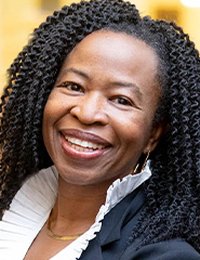
Ruth Okediji is the Jeremiah Smith, Jr. Professor of Law at Harvard Law School and Director of Harvard University’s Berkman Klein Center for Internet & Society. A globally renowned intellectual property law scholar, she teaches and works on issues related to AI, ethics, data security and economic development.
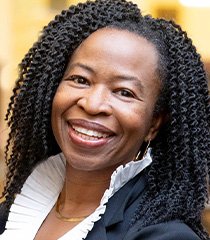
Ruth Okediji is the Jeremiah Smith, Jr. Professor of Law at Harvard Law School and Director of Harvard University’s Berkman Klein Center for Internet & Society. A globally renowned intellectual property law scholar, she teaches and works on issues related to AI, ethics, data security and economic development. She advises inter-governmental organizations, regional economic communities, and national governments on a range of matters related to technology, innovation policy, and human flourishing.
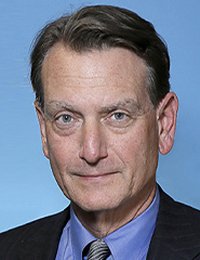
Marc Rotenberg is the founder and executive director of the Center for AI and Digital Policy, a global organization focused on emerging challenges associated with Artificial Intelligence. He serves as an expert advisor on AI policy to many organizations around the world.
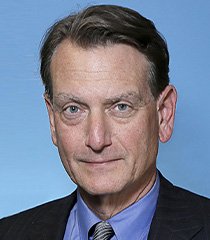
Marc Rotenberg is the founder and executive director of the Center on AI and Digital Policy. The mission of the Center is "to promote a better society, more fair, more just — a world where technology promotes broad social inclusion based on fundamental rights, democratic institutions, and the rule of law." In 2020, the Center published "Artificial Intelligence and Democratic Values," the first report to evaluate national AI policies and practices. The Center has since launched an extensive training program for future leaders in AI policy.
Marc compiled the AI Policy Sourcebook (2019, 2020), the first reference book on AI policy. Marc served on the OECD AI Group of Experts and helped draft the OECD AI Principles. Marc also drafted the Universal Guidelines for AI, a widely endorsed human rights framework for AI policy. Marc has published several commentaries in the New York Times about the challenges of AI policymaking, including "Bias by Computer (2016)" and "The Battle over Artificial Intelligence (2019)." Marc also launched the campaign in 2014 for Algorithmic Transparency. In the early 1980s, Marc wrote game programs (backgammon and chess) and lectured on Artificial Intelligence at Harvard University as a Teaching Fellow in computer science.
Marc has served on expert panels for the ABA, the AAAS, the Aspen Institute, the ACM, the Club de Madrid, ICANN, the IOM, the ITU, the IWGDP, the NAS, the OECD, the US Senate, and UNESCO. Marc was recently named to expert panels for the Global Privacy Assembly, the Global Partnership on AI, the Council of Europe, and the European Data Protection Board. Marc is also a Fellow of the American Bar Foundation, the Council on Foreign Relations, and the European Law Institute.
Marc is the editor of leading reference books on privacy, open government, and AI. Marc's commentaries have appeared in CACM, CNN, the Economist, the European Data Protection Law Review, the European Law Journal, the Financial Times, the Harvard Business Review, the Harvard International Review, the Harvard Journal of Law and Public Policy, Issues in Science and Technology, the Japan Economic Forum, the New York Times, Newsweek, Scientific American, the Stanford Technology Law Review, Techonomy, Wired, and others. Marc is the lead author of the forthcoming The Law of Artificial Intelligence (West Academic 2023).
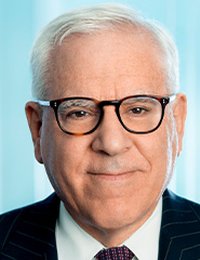
David M. Rubenstein is Co-Founder and Co-Chairman of The Carlyle Group, one of the world’s largest and most successful private investment firms. Established in 1987, Carlyle now manages $369 billion from 29 offices around the world.
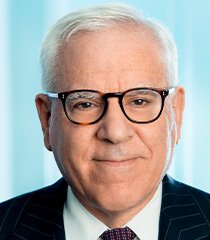
David M. Rubenstein is Co-Founder and Co-Chairman of The Carlyle Group, one of the world’s largest and most successful private investment firms. Established in 1987, Carlyle now manages $369 billion from 29 offices around the world.
Mr. Rubenstein is Chairman of the Boards of the John F. Kennedy Center for the Performing Arts, the Council on Foreign Relations, the National Gallery of Art, the Economic Club of Washington, and the University of Chicago; a Fellow of the Harvard Corporation; a Trustee of Memorial Sloan-Kettering Cancer Center, Johns Hopkins Medicine, the Institute for Advanced Study, the National Constitution Center, the Brookings Institution, and the World Economic Forum; and a Director of the Lincoln Center for the Performing Arts and the American Academy of Arts and Sciences, among other board seats.
Mr. Rubenstein is a leader in the area of Patriotic Philanthropy, having made transformative gifts for the restoration or repair of the Washington Monument, Lincoln Memorial, Jefferson Memorial, Monticello, Montpelier, Mount Vernon, Arlington House, Iwo Jima Memorial, the Kennedy Center, the Smithsonian, the National Archives, the National Zoo, the Library of Congress, and the National Museum of African American History and Culture.
Mr. Rubenstein is an original signer of The Giving Pledge; the host of The David Rubenstein Show and Bloomberg Wealth with David Rubenstein; and the author of The American Story, How to Lead, The American Experiment, and How to Invest.

Colin Rule is President and CEO of Mediate.com. In 2011 he co-founded Modria.com, an Online Dispute Resolution (ODR) provider based in Silicon Valley, which was acquired by Tyler Technologies in 2017. He has worked in the dispute resolution field for more than 25 years as a mediator, trainer, and consultant.

Colin Rule is President and CEO of Mediate.com. In 2011 Colin co-founded Modria.com, an Online Dispute Resolution (ODR) provider based in Silicon Valley, which was acquired by Tyler Technologies in 2017. From 2017 to 2020 Colin served as Vice President of ODR at Tyler. From 2003 to 2011 Colin was Director of Online Dispute Resolution for eBay and PayPal. He has worked in the dispute resolution field for more than 25 years as a mediator, trainer, and consultant. He is currently Co-Chair of the Advisory Board of the National Center for Technology and Dispute Resolution at UMass-Amherst and a Non-Resident Fellow at the Gould Center for Conflict Resolution at Stanford Law School.
Colin co-founded Online Resolution, one of the first online dispute resolution (ODR) providers, in 1999 and served as its CEO and President. In 2002 Colin co-founded the Online Public Disputes Project which applied ODR to multiparty, public disputes. Colin also worked for several years with the National Institute for Dispute Resolution (now ACR) in Washington, D.C. and the Consensus Building Institute in Cambridge, MA.
Colin has presented and trained around the world for organizations including the Singapore Mediation Center, the Federal Mediation and Conciliation Service, the International Association of Court Administrators, the International Chamber of Commerce, and the CPR Institute for Dispute Resolution. He has also lectured and taught at UMass-Amherst, Harvard, Yale, Stanford, Pepperdine, Southern Methodist University, and Santa Clara University.
Colin is the author of Online Dispute Resolution for Business, published by Jossey-Bass in September 2002, and co-author of The New Handshake: Online Dispute Resolution and the Future of Consumer Protection, published by the ABA in 2017, as well as many dozens of articles in ADR journals and publications. He serves on the boards of the Consensus Building Institute and the PeaceTech Lab at the United States Institute of Peace. Colin received the Frank Sander Award from the American Bar Association in 2019 and the Mary Parker Follett Award from the Association for Conflict Resolution in 2013. He holds a Master’s degree from Harvard University’s Kennedy School of Government in conflict resolution and technology, a graduate certificate in dispute resolution from UMass-Boston, a B.A. from Haverford College, and he served as a Peace Corps volunteer in Eritrea from 1995-1997.
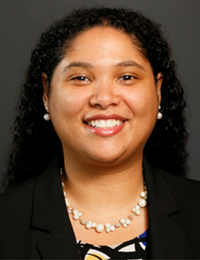
Victoria Shannon Sahani is the Associate Provost for Community and Inclusion at Boston University and a Professor of Law at Boston University School of Law. She previously served as Associate Dean of Faculty Development / Special Projects and Professor of Law at Arizona State University’s Sandra Day O’Connor College of Law.
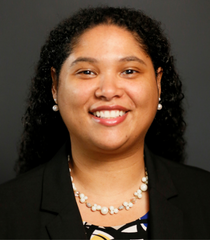
Victoria Shannon Sahani is the Associate Provost for Community and Inclusion at Boston University and a Professor of Law at Boston University School of Law. She previously served as Associate Dean of Faculty Development / Special Projects and Professor of Law at Arizona State University’s Sandra Day O’Connor College of Law. She began her teaching career and was promoted to Associate Professor of Law at Washington & Lee University School of Law.
Before joining BU Law, she served as Director of the Faculty Inclusion Research for System Transformation (FIRST) Initiative at Arizona State University, a university-wide initiative commissioned by the ASU president's office examining the history of race and inclusion among faculty at the University. She also holds several leadership positions in the international arbitration community, including Chair of the Institute for Transnational Arbitration (ITA) Academic Council, Chair Emeritus of the Academic Subcommittee of the United States Council for International Business (USCIB) Arbitration Committee, Member of the International Chamber of Commerce (ICC) Commission on Arbitration and ADR, and Member of the ICCA-Queen Mary Task Force on Third-Party Funding in International Arbitration. She is a co-author of the book Third-Party Funding in International Arbitration (2d ed. 2017) (with Lisa Bench Nieuwveld), as well as numerous book chapters, articles, essays, and blog posts.
Before joining the legal academy, Dean Sahani served for five years as Deputy Director of Arbitration and ADR in North America for the ICC International Court of Arbitration, as well as Deputy Director of the Arbitration and ADR Committee of the United States Council for International Business (USCIB). Before joining the ICC and USCIB, she served as an associate attorney with Pillsbury Winthrop Shaw Pittman LLP in San Francisco, where she specialized in complex tax credit and municipal bond financing arrangements for affordable housing and community development-focused real estate transactions, as well as matters involving American Indian tribes. She earned her undergraduate degree from Harvard University and her law degree from Harvard Law School. She is an active member of the bar in New York and the District of Columbia.
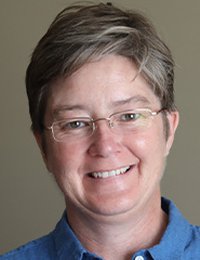
Rebecca Sandefur investigates access to civil justice from every angle—from how legal services are delivered and consumed, to how civil legal aid is organized around the nation, to the relative efficacy of lawyers, nonlawyers and digital tools as advisers and representatives.
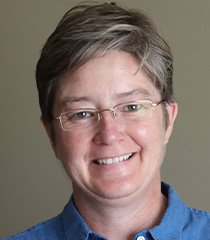
Rebecca L. Sandefur investigates access to civil justice from every angle—from how legal services are delivered and consumed, to how civil legal aid is organized around the nation, to the role of pro bono, to the relative efficacy of lawyers, nonlawyers and digital tools as advisers and representatives, to how ordinary people think about their justice problems and try to resolve them. In addition to her appointment at ASU, Sandefur is Faculty Fellow at the American Bar Foundation, where she founded and leads the Access to Justice Research Initiative.
Her public service includes her appointment by the Supreme Court of Utah to the state's Office of Legal Services Innovation and her appointment by the Supreme Court of Arizona to the Arizona Commission on Access to Justice.
In 2013, Sandefur was The Hague Visiting Chair in the Rule of Law. In 2015, she was named Champion of Justice by the National Center for Access to Justice. In 2018, she was named a MacArthur Fellow for her work on inequality and access to justice. In 2020, she was awarded the Warren E. Burger Award by the National Center for State Courts.
Sandefur was born in and spent her early years in Oklahoma, and is an enrolled member of the Chickasaw Nation.
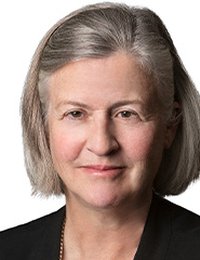
Virginia A. Seitz, former Assistant Attorney General of the Office of Legal Counsel in the Department of Justice, is a partner in Sidley Austin’s Supreme Court and Appellate practice. Virginia has practiced in the appellate courts for 25 years. On behalf of a wide range of clients in numerous industries, she has handled cases in the United States Supreme Court, in virtually all of the courts of appeals and in state appellate courts.
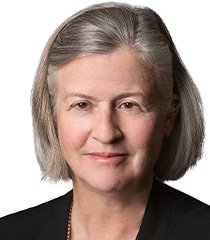
Virginia A. Seitz, former Assistant Attorney General of the Office of Legal Counsel in the Department of Justice, is a partner in Sidley Austin’s Supreme Court and Appellate practice. Virginia has practiced in the appellate courts for 25 years. On behalf of a wide range of clients in numerous industries, she has handled cases in the United States Supreme Court, in virtually all of the courts of appeals and in state appellate courts.
She has authored more than 75 briefs in the United States Supreme Court. She was counsel of record on the amicus brief on behalf of retired military officers in Grutter v. Bollinger, 539 U.S. 306 (2003), and Gratz v. Bollinger, 539 U.S. 244 (2003). The brief was cited by the Supreme Court in the oral argument and opinion in Grutter; and a New York Times piece noted that it “may have been the most influential amicus brief in the history of the Supreme Court.” Finally, she has handled an array of district court litigation involving important constitutional and federal law issues, including the Appropriations and Supremacy Clauses of the Constitution, the First Amendment, Title IX, Title VII, the Anti-Deficiency Act, ERISA, RICO, the NLRA, section 301 of the Labor Management Relations Act and the Landrum-Griffin Act.
She returned to Sidley in 2014 after serving for two-and-a-half years in the Senate-confirmed position of Assistant Attorney General for the Office of Legal Counsel in the Department of Justice. She was the first woman to be confirmed to that position. As the leader of that Office, she was responsible for providing legal advice to the President and Executive Branch departments and agencies on issues of particular difficulty and importance, including those issues on which there was a dispute between federal agencies. She currently serves as General Counsel to the firm.
Earlier in her career, she was confirmed by the Senate to the first Board of Directors of the Congressional Office of Compliance and served from May 1995 to May 2000. That Board promulgates regulations and adjudicates disputes concerning Members of Congress and their employees under the Congressional Accountability Act, which applies all major federal labor and employment laws to legislative branch employers and employees. She currently serves as a member of the Advisory Committee on Civil Rules, the Committee which studies and develops proposed amendments to the Federal Rules of Civil Procedure for submission to the Committee on Rules of Practice and Procedure of the Judicial Conference of the United States.
She has been recognized for her Appellate Law practice by Chambers USA (2009, 2010, 2011) and recommended by The Legal 500 US in Litigation: Supreme Court and Appellate (2010, 2011). She also was included in The Best Lawyers in America from 2001–2012, 2015–2017.
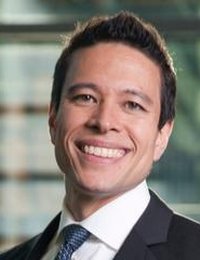
Francis X. Shen, JD, PhD is a professor at Harvard Law School, Associate Professor in the Harvard Medical School Center for Bioethics and the MGH Department of Psychiatry. Previously Dr. Shen was a Professor of Law, McKnight Presidential Fellow, and faculty member in the Graduate Program in Neuroscience at the University of Minnesota.
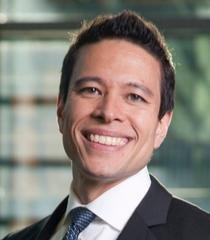
Francis X. Shen, JD, PhD is a professor at Harvard Law School, Associate Professor in the Harvard Medical School Center for Bioethics and the MGH Department of Psychiatry. Previously Dr. Shen was a Professor of Law, McKnight Presidential Fellow, and faculty member in the Graduate Program in Neuroscience at the University of Minnesota. He is also a faculty member and past Executive Director of the Center for Law, Brain & Behavior (CLBB) at MGH, and serves as the Executive Director of Education and Outreach for the MacArthur Foundation Research Network on Law and Neuroscience. In fall 2020 he was a Florence Rogatz Visiting Professor of Law at Yale Law School, where he co-taught Criminal Law with Judge (Ret.) Nancy Gertner. He served as a member of the Neuroethics Subgroup of the National Institutes of Health Advisory Committee to the Director BRAIN Initiative Working Group, and speaks nationally and internationally about the emerging intersection of neuroscience and law.
Dr. Shen directs the Shen Neurolaw Lab, whose Lab motto is, “Every story is a brain story.” He conducts empirical and legal research at the intersection of law, ethics, neuroscience, and artificial intelligence. He has co-authored 3 books, including the first Law and Neuroscience casebook (Aspen), and published articles on a range of neurolaw and neuroethics topics, including the computational phenotyping, portable neuroimaging, memory and lie detection, cognitive enhancement, criminal justice, brain injury, evidentiary admissibility, sports concussion, juror decision-making, criminal mental states, dementia, and mental health. With co-PIs Susan Wolf and Frances Lawrenz at the University of Minnesota and a national working group, Dr. Shen is leading an NIH BRAIN RF1 project on Highly Portable and Cloud-Enabled Neuroimaging Research: Confronting Ethics Challenges in Field Research with New Populations. In 2021, he was awarded the Early Career Scholars Medal by the American Law Institute, one of two medals awarded every other year by the ALI, for being “a pioneer in establishing the interdisciplinary field of law and neuroscience.” He received his B.A. from the University of Chicago, his JD from Harvard Law School, and his PhD from the Harvard Government Department and Harvard Kennedy School Program on Social Policy.

As Microsoft’s vice chair and president, Brad Smith leads a team of more than 1,900 professionals located in 54 countries and operating in more than 120 nations. He plays a key role in spearheading the company’s work on critical issues involving the intersection of technology and society.

As Microsoft’s vice chair and president, Brad Smith leads a team of more than 1,900 business, legal and corporate affairs professionals located in 54 countries and operating in more than 120 nations. He plays a key role in spearheading the company’s work on critical issues involving the intersection of technology and society, including cybersecurity, privacy, artificial intelligence, environmental sustainability, human rights, immigration and philanthropy. In his recent bestselling book, coauthored with Microsoft’s Carol Ann Browne, Tools and Weapons: The Promise and the Peril of the Digital Age, Smith urges the tech sector to assume more responsibility and calls for governments to move faster to address the challenges that new technologies are creating. In his new podcast by the same name, Smith and his guests expand on the themes in the book, exploring potential solutions to the digital issues shaping the world today. The New York Times has called Smith “a de facto ambassador for the technology industry at large” and The Australian Financial Review has described him as “one of the technology industry’s most respected figures.” He has testified numerous times before the U.S. Congress and other governments on these key policy issues.
Smith joined Microsoft in 1993, first spending three years in Paris leading the legal and corporate affairs team in Europe. In 2002, he was named Microsoft’s general counsel and spent the following decade leading work to resolve the company’s antitrust controversies with governments around the world and companies across the tech sector. Over the past decade, Smith has spearheaded the company’s work to advance privacy protection for Microsoft customers and the rights of DREAMers and other immigrants, including bringing multiple lawsuits against the U.S. government on these issues.
Prior to joining Microsoft, Smith was an associate and then partner at the law firm of Covington and Burling, where he is still remembered as the first attorney in the long history of the firm to insist (in 1986) on having a personal computer on his desk as a condition for accepting a job offer. In addition to his work at Microsoft, Smith is active in several civic organizations and in the broader technology industry. He has served on the Netflix board of directors since 2015 and chairs the board of directors of both Kids in Need of Defense (KIND) and the Washington State Opportunity Scholarship program.
Smith grew up in Appleton, Wisconsin, where Green Bay was the big city next door. He attended Princeton University, where he met his wife, Kathy. He earned his J.D. from Columbia University Law School and studied international law and economics at the Graduate Institute in Geneva, Switzerland. He can be followed on Twitter and LinkedIn. His podcast, Tools and Weapons with Brad Smith, is available on all podcast platforms.
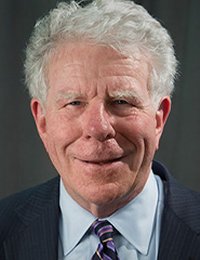
Michael Traynor is senior counsel at Cobalt LLP in Berkeley California. He served as ALI President from 2000 to 2008, and as Chair of the Council from 2008 to 2011.
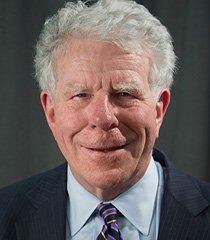
Michael Traynor is senior counsel at Cobalt LLP in Berkeley California. He served as ALI President from 2000 to 2008, and as Chair of the Council from 2008 to 2011. He is also a recipient of ALI's Distinguished Service Award. Mr. Traynor is a Fellow of the American Academy of Arts & Sciences, the American Academy of Appellate Lawyers, the California Academy of Appellate Lawyers, and the American Association for the Advancement of Science. He received the John P. Frank Outstanding Lawyer Award from the U.S. Court of Appeals for the Ninth Circuit. He is an honorary life trustee of the Lawyers Committee for Civil Rights Under Law and of Earthjustice and a past President (1973) of the Bar Association of San Francisco.
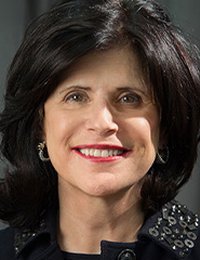
Sarah S. Vance is a Judge for the U.S. District Court for the Eastern District of Louisiana, having served as Chief Judge from 2008 to 2015. Before joining the bench in 1994, she was a partner in the New Orleans firm of Stone Pigman Walther Wittmann & Hutchinson, where her practice focused on antitrust and commercial litigation.
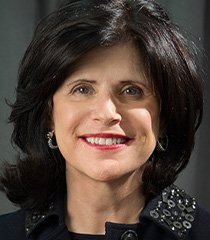
Sarah S. Vance is a Judge for the U.S. District Court for the Eastern District of Louisiana, having served as Chief Judge from 2008 to 2015. Before joining the bench in 1994, she was a partner in the New Orleans firm of Stone Pigman Walther Wittmann & Hutchinson, where her practice focused on antitrust and commercial litigation.
Chief Judge Vance was elected to the ALI in 1996 and was elected to the Council in 2013. She is an Adviser on the Restatement of the Law of Liability Insurance project and is on the Members Consultative Group for the Principles of Government Ethics project.
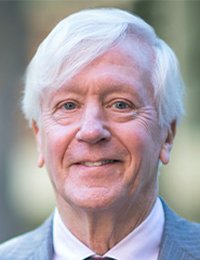
G. Edward White is the David and Mary Harrison Distinguished Professor of Law at the University of Virginia School of Law. White joined the Virginia law faculty in 1972 and has held several chairs throughout his tenure. He has held visiting appointments at New York Law School, William & Mary School of Law, Brooklyn Law School, Arizona College of Law, the London School of Economics and Political Science, the University of Auckland Law School and Harvard Law School.
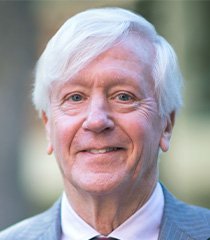
G. Edward White joined the Virginia law faculty in 1972 after a clerkship with Chief Justice Earl Warren of the Supreme Court of the United States and a year as visiting scholar at the American Bar Foundation. He was appointed John B. Minor Professor of Law and History in 1987, and held that chair until 2003, when he became David and Mary Harrison Distinguished Professor of Law. In 1992, he was appointed to a University Professorship, which he held until 2003. From 1990 until 1992 and from 2001-03, he was the Sullivan & Cromwell Research Professor; from 1994-97 the E. James Kelly Research Professor; and from 1999-2001 the Class of 1963 Research Professor. He has held visiting appointments at New York Law School, William & Mary School of Law, Brooklyn Law School, Arizona College of Law, the London School of Economics and Political Science, the University of Auckland Law School and Harvard Law School. He has been a Guggenheim Fellow, and twice a senior fellow of the National Endowment for the Humanities. He is a fellow of the American Academy of Arts & Sciences, a fellow of the Society of American Historians, and a member of the American Law Institute. He received the Roger and Madeleine Traynor Faculty Achievement Award in 2008.
White’s 20 published books have won numerous honors and awards. These include final listing for the Pulitzer Prize in history, the Silver Gavel Award from the American Bar Association, the James Willard Hurst Prize from the Law & Society Association, the Littleton-Griswold Prize from the American Historical Association, the Scribes Award and the Association of American Law Schools' Triennial Coif Award. White's books, and two of his scholarly articles, have garnered 17 such honors and awards since 1969.
White was editor of the Studies in Legal History series for the American Society for Legal History and the University of North Carolina Press from 1980-85, and adviser on law manuscripts for Oxford University Press from 1986-96. He served on the Board of Directors of the American Society for Legal History from 1977-79, and on the Board of Editors of the Virginia Quarterly Review from 1980-2002. White has delivered several endowed lectures, including the inaugural John Marshall Lecture, sponsored by the Boston Bar Association; the inaugural Jerome Hall Lecture at Hastings College of Law; the Swinford Lecture, sponsored by the University of Kentucky School of Law and the Kentucky Bar Association; the Keck Lecture at Amherst College; the Rosenthal Lectures at Northwestern University School of Law; the Neesima Lectures at Doshisha University, Japan; the Fulton Lecture at the Chicago School of Law; the Knowlton Distinguished Lecture at the University of South Carolina School of Law; the Hendricks Law and History Lecture at Washington & Lee Law School; the Legal Research Foundation Lecture at the University of Auckland Law School; and the Contextual Lecture at the Dulwich Picture Gallery in London. His most recent endowed lecture was the Acker Lecture at Birmingham Southern College in 2017.
White’s 1996 and 2022 books, Creating the National Pastime: Baseball Transforms Itself, 1903-1953 and Soccer in American Culture: The Beautiful Game’s Struggle For Status, reflect his life-long participation and interest in athletics. He lettered in four sports in college, formerly coached the Charlottesville High School girls’ soccer team, and has won a number of state- and citywide tournaments in doubles squash.
White co-authored (with Kenneth S. Abraham) “The Work of the American Law Institute in Historical Context,” in The American Law Institute: A Centennial History.
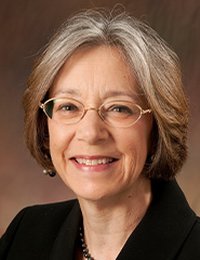
Diane P. Wood has been on the U.S. Court of Appeals, Seventh Circuit since 1995, serving as Chief Judge from 2013 to 2020. She currently serves as ALI's Director Designate and will assume the role of Director in May 2023.
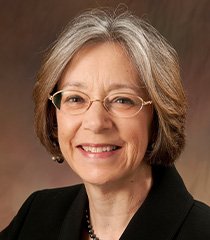
Diane P. Wood has been on the U.S. Court of Appeals, Seventh Circuit since 1995, serving as Chief Judge from 2013 to 2020. She also is a Senior Lecturer in Law at the University of Chicago Law School, where she teaches in the areas of federal civil procedure, antitrust law, and international trade and business.
Before her appointment to the bench, she was the Harold J. and Marion F. Green Professor of International Legal Studies at the University of Chicago Law School, the first woman to hold a named chair at the school. She also served for two years as Deputy Assistant Attorney General in the Antitrust Division of the U.S. Department of Justice, with responsibility for the Division's international, appellate, and legal policy matters.
Wood was elected to the ALI in 1990 and was elected to the Council in 2003. She currently serves on the Special Committee on ALI’s 100th Anniversary and chairs the ALI Early Career Scholars Medal Committee. She has served as an Adviser to Restatement of the Law, The Law of American Indians; Restatement of the Law Fourth, The Foreign Relations Law of the United States – Jurisdiction; Legal and Economic Principles of World Trade Law; Principles of the Law of Aggregate Litigation; and as U.S. Adviser to Transnational Rules of Civil Procedure. She also served on the Members Consultative Group for Complex Litigation: Statutory Recommendations and Analysis.
After law school, she clerked for Judge Irving L. Goldberg of the U.S. Court of Appeals for the Fifth Circuit and for Justice Harry A. Blackmun of the U.S. Supreme Court.
She was recently appointed as Director Designate of ALI and will assume the role of Director in May 2023.
